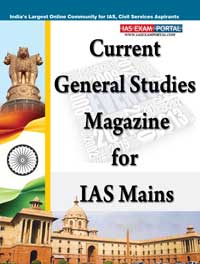Current General Studies Magazine: "The Case for full Disclosure" January 2016

Current General Studies Magazine (January 2016)
General Studies - II "Debate Based Article" (The Case for full Disclosure)
Prime Minister Narendra Modi delivered on his promise and released 100 files on Subhas Chandra Bose in the presence of the freedom fighter’s family, which has persisted with its demand for declassifying all documents that could shed light on his mysterious disappearance and probable death in a plane crash on August 18, 1945. Mr. Modi also has assured that 25 files will be declassified each month. But should the declassification of the Netaji files have required the intervention of the Prime Minister, a process which should have happened in the natural course of things?
The disclosures also bring into sharp focus the conflict between the laws passed by governments, specially those involving secrets, and those involving the Right to Information (RTI). It’s not that we don’t have a policy with regard to public records, their maintenance, and their declassification after sufficient time has elapsed. The Public Records Rules, 1997 prescribe that records more than 25 years old be reviewed every five years and documents considered fit for permanent preservation transferred to the National Archives. The rules detail how government departments should have an officer to peruse the records and declassify them to be sent to the National Archives.
Sitting on files the norm
The Ministry of External Affairs started the process of
systematically declassifying documents a decade ago when it discovered it was
running out of space to house them. The Ministry of Defence has a history
department, but periodic declassification is not the norm here. Other
departments of the government have not done anything at all; research scholar
and historian Srinath Raghavan says, “there is no interest and this is not a
priority”.
Periodically, various government departments dump files in the National
Archives, contrary to the Public Record Rules which state that every department
will have an officer to examine the records and downgrade or declassify them as
per rules specified in the Departmental Security Instructions issued by the
Ministry of Home Affairs. The Home Ministry does not explain the criteria for
files marked Top Secret, Secret, Confidential and Restricted, according to the
implications of their disclosure for national security.
Documents whose disclosure would have zero impact on the security of the country are marked unclassified. But the process requires officials in government departments to go through the files and send them to the National Archives where the process of systematic cataloguing takes place. The Public Record Rules not only have a proviso for a record-creating agency in government departments but also authorise an officer not below the rank of an Under Secretary to the Government of India to evaluate and downgrade the classified records being maintained by them which are sent to the National Archives.
The unease of access
What happens to documents that are moved to the National Archives, mandated by law to preserve them for posterity? Shortfall of staff, lack of systematic digital cataloguing, a process that started a few years ago, prevent easy access even to declassified files. Ever tried accessing maps at the National Archives? There are a large number of maps declassified, catalogued and available for the public, not to mention the load of classified maps hidden away from prying eyes. While getting near an “unclassified” map is in itself a convoluted process, for the common man to get a copy of most of them is next to impossible. Having said that, some research scholars say there are several papers related to the Emergency in National Archives that few people have bothered looking into.
The United Progressive Alliance government passed the RTI Act in 2005 to help citizens of the country understand how government decisions are arrived at.
Quite so often, to get information is a long haul as the government cites rules to seek exemption from disclosures, citing threat to the security of the country. The exercise of this right often puts it in conflict with existing Official Secrets Act — often cited as the reason against public disclosure — even though the RTI Act weighs in favour of public interest and says a public authority may allow access to information if public interest in disclosure outweighs the harm to the protected interests.
And for making the Netaji files public, questions will be asked of the Prime Minister as his party rushes to appropriate national figures from history for narrow political gain. After all, West Bengal goes to the polls a few months from now and from all indications, the Netaji saga will be a part of the electoral narrative of political parties. Will it help the Bharatiya Janata Party? Especially after West Bengal Chief Minister Mamata Banerjee beat Mr. Modi to the game by declassifying a bunch of Netaji papers in Kolkata?
The family of Lal Bahadur Shastri has been seeking documents related to his sudden death in Tashkent. Such documents should automatically become the preserve of the National Archives without the attendant drama. Now is a good time to debate the criteria which enables the government to keep secrets instead of making everything public.

